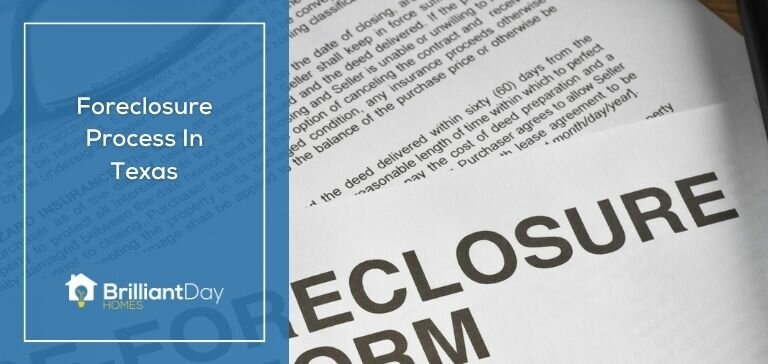
We Buy Houses in Katy and we know how tough the foreclosure process can be. This article will try to help you understand the foreclosure process and selling your home in Texas because it is an important part of navigating your own home foreclosure or avoiding it altogether.
What Is Foreclosure?
In a nutshell – This is how banks or lenders can legally gain control of a property if a borrower stops making payments on it.
It is important to understand the foreclosure process because when you do, you will be able to better control the situation. If you have no understanding of what is happening, you could more than likely lose your home.
Stages of A Foreclosure
There are a few stages that are important to any foreclosure process.
Foreclosure works differently in different states around the country.
The two ways different states use to foreclose upon a property are judicial sale or power of sale. Most foreclosures in Texas are judicial sales however both options are used.
In either scenario, foreclosure typically doesn’t go to court until 3-6 months of missed payments have elapsed. Usually (but not always), a lender will send out many notices that you are in arrears – overdue or behind in your payment. This time frame prior to the court hearing is labeled pre-foreclosure. The pre-foreclosure period should be a HUGE warning sign that a plan needs to be implemented asap to possibly avoid the execution of the foreclosure. You can sell your property before the foreclosure has been executed which will avoid the hit to your credit and allow you to move on. If the foreclosure is executed you will have no choice but to leave the property behind and move on.
Judicial Foreclosure:
- Your mortgage lender must file suit in the court system.
- You’ll get a letter from the court demanding payment sometimes referred to as a Notice of Default.
- Assuming the loan is valid, you’ll have 30 days to bring payment to court to avoid foreclosure (and sometimes that can be extended).
- If you don’t pay during the payment period, a judgment will be entered and the lender can request the sale of your property – usually through an auction.
- Once the property is sold, the sheriff serves an eviction notice and forces you to immediately vacate the property.
Non-Judicial Foreclosure:
- This is also known as “power of sale”
- The mortgage lender serves you with papers demanding payment, and the courts are not required – although the process may be subject to judicial review.
- After the established waiting period has elapsed, a deed of trust is drawn up and control of your property is transferred to a trustee.
- The trustee can then sell your property to the lender at a public auction (notice must be given).
Anyone who has an interest in the property must be notified during either type of foreclosure.
For example, any contractors or banks with liens against a foreclosed property are entitled to collect from the proceedings of an auction.
What Happens After A Foreclosure Auction?
After a foreclosure is complete, the loan amount is paid off with the sale proceeds.
Sometimes, if the sale of the property at auction isn’t enough to pay off the loan, a deficiency judgment can be issued against the borrower.
A deficiency judgment is where the bank gets a judgment against you, the borrower, for the remaining funds owed to the bank on the loan amount after the foreclosure sale.
Some states limit the amount owed in a deficiency judgment to the fair value of the property at the time of sale, while other states will allow the full loan amount to be assessed against the borrower.
Here’s a great resource that lists the state-by-state deficiency judgment laws, since every state is different.
Generally, it’s best to avoid a foreclosure auction. Instead, call up the bank, or work with a reputable real estate firm like us at Brilliant Day Homes to help you negotiate discounts off the amount owed to avoid having to carry out a foreclosure. If you are behind on your mortgage payments or property taxes do not wait to get help.
Sell Your House
Experienced investors can help you by negotiating directly with banks to lower the amount you owe in a sale – or even eliminate it, even if your home is worth less than you owe.
If you need to sell a property near Houston, we can help you.

